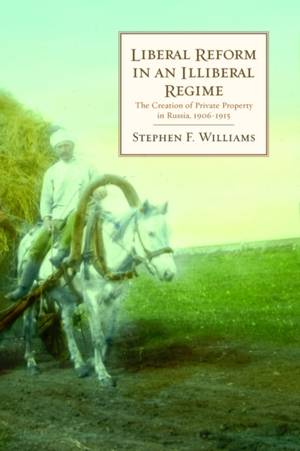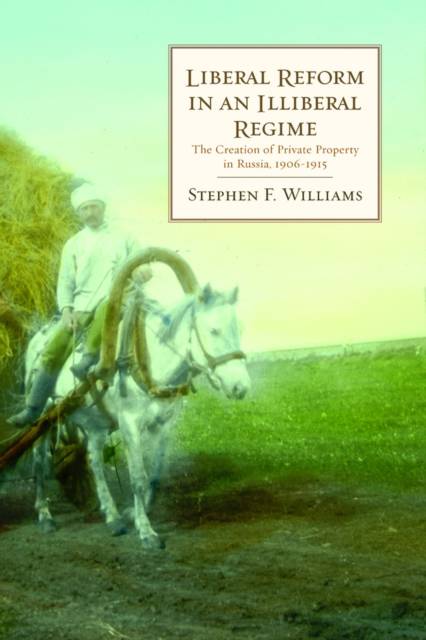
- Afhalen na 1 uur in een winkel met voorraad
- Gratis thuislevering in België vanaf € 30
- Ruim aanbod met 7 miljoen producten
- Afhalen na 1 uur in een winkel met voorraad
- Gratis thuislevering in België vanaf € 30
- Ruim aanbod met 7 miljoen producten
Liberal Reform in an Illiberal Regime
The Creation of Private Property in Russia, 1906-1915 Volume 545
Stephen F WilliamsOmschrijving
When the Soviet Union fell in 1991, many speculated about the value of Russia's historical experience with market-oriented reform. Liberal Reform in an Illiberal Regime tells how, in 1906, on the eve of world war and cataclysmic revolution, the Russian government undertook perhaps the most sweeping "privatization" in history, radically changing the property rights regime faced by 90 million peasants.
Stephen F. Williams's examination of property rights reforms in Russia before the revolution reveals the advantages and pitfalls of that radical transformation toward liberal democracy at the initiative of a government that could not be described as either liberal or democratic.
As he sets out the key features of the changes, the author also explores the process of liberal reform. He raises key questions: Can truly liberal reform be established effectively from above, or must it be won from the bottom up, by forming groups that extract concessions from the state? Or is liberal democracy simply the product of exceptional historical circumstances and unlikely ever to be fully attained by much of the globe? Examining how the reforms affected productivity, he explores whether they actually aggravated social tensions, pushing Russia away from liberal democracy. And he looks at the pitfalls of top-down liberal reform: laws emerging from a legislative process that largely excludes the most-affected groups, unclear baseline rights, illiberalism, and the risk of half measures.
Specificaties
Betrokkenen
- Auteur(s):
- Uitgeverij:
Inhoud
- Aantal bladzijden:
- 320
- Taal:
- Engels
- Reeks:
Eigenschappen
- Productcode (EAN):
- 9780817947224
- Verschijningsdatum:
- 25/10/2006
- Uitvoering:
- Paperback
- Formaat:
- Trade paperback (VS)
- Afmetingen:
- 160 mm x 228 mm
- Gewicht:
- 521 g

Alleen bij Standaard Boekhandel
Beoordelingen
We publiceren alleen reviews die voldoen aan de voorwaarden voor reviews. Bekijk onze voorwaarden voor reviews.











